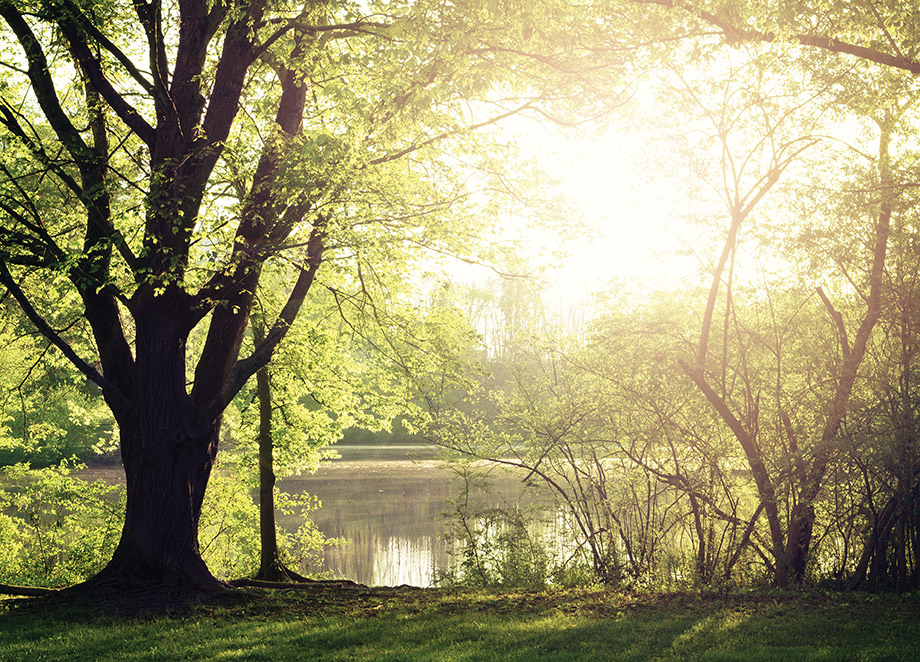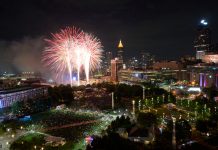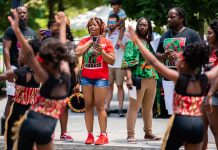
Photograph by John E. McDonald
Lullwater Preserve
Emory students and staff have access to this lush 154-acre private preserve—yet with joggers running through the trails and families feeding ducks and turtles in Candler Lake, the only indication you’re on a college campus is a handful of students studying by the shore. Once owned by the Coca-Cola Candlers, the greenspace still contains the family’s Tudor mansion (now the Emory president’s Lullwater House) and the ruins of a Rapunzel-esque stone powerhouse, which once furnished the home’s electricity and can be seen after crossing a 210-foot suspension bridge. 1463 Clifton Road; park behind the dorms just off Clifton Road
Centennial Olympic Park
In 1995 Atlanta officials took parking lots and put up a paradise. The 21-acre park, operated by the Georgia World Congress Authority, was redesigned for public use after the Olympics. But it still contains plenty of reminders of 1996, like the eight 65-foot-tall Hermes Towers, which are reproductions of ancient Greek columns. Post-Games, Centennial has been reinvented as a popular concert venue (the location for Outkast’s 2014 homecoming) and the site of one of the city’s biggest Independence Day fireworks displays. 265 Park Avenue West, centennialpark.com
Woodlands Garden
In 2002 the descendants of Chester and Eugenia Morse donated the family’s seven-acre home and surrounding grounds to the Decatur Preservation Alliance, creating a green sanctuary. The Georgia Piedmont Native Garden is composed mostly of woodlands, with native species like white oaks and azaleas. Nearby you can soak up the serenity at the Morse Family Heritage Garden among blooming camellias and hydrangeas. 932 Scott Boulevard, Decatur, woodlandsgarden.org
This article originally appeared in the June 2015 issue.













